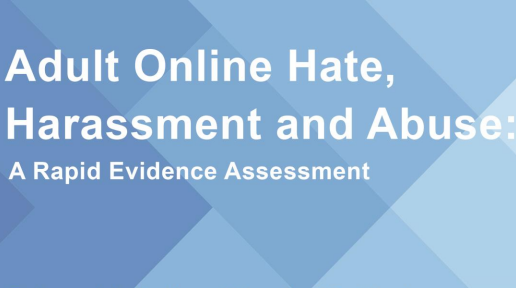 In the second of a two part series about the Internet of Things, Claire Milne, Visiting Senior Fellow at LSE’s Department of Media and Communications, expands on the some of the issues debated in the first post, looking in particular at various national policies from the perspective of public engagement and a consumer-focused approach.
In the second of a two part series about the Internet of Things, Claire Milne, Visiting Senior Fellow at LSE’s Department of Media and Communications, expands on the some of the issues debated in the first post, looking in particular at various national policies from the perspective of public engagement and a consumer-focused approach.
In an earlier blog post, I put forward the case for much wider debate on consumer and public interest issues relating to the Internet of Things (IoT), especially around the vital areas of privacy and security. The earlier post mentioned national policies, and this post looks at some of these with particular reference to public engagement, building on these comments from Ian Brown’s ‘Regulation and the Internet of Things‘ in the International Telecommunication Union (ITU)’s Trends in Telecommunication Reform 2016 (my highlights):
“Some countries are taking a relatively hands-off approach to IoT regulation, focusing instead on promoting economic growth and innovation. For example, the South Korean government has recently planned to reduce IoT (as well as e-commerce and Internet finance) regulation to support a dynamic ecosystem for future growth. It still plans to protect users, prevent abuse of market dominance and protect Internet networks, and it will decide on which restrictions to maintain through social consensus. Other countries and regions – notably the European Union – are taking a more pro-active role to protect social values, such as privacy, as the IoT develops, while still paying strong attention to the need to promote the economic benefits of the technology. Such strategic decisions are political ones that can only be taken by national governments…”
In the UK, IoT policy is still well summarised by Sir Mark Walport, the Government’s Chief Scientific Adviser, in his 2014 Blackett review, ‘Internet of Things: making the most of the second industrial revolution’. Its leading recommendation is: “The aspiration should be that the UK will be a world leader in the development and implementation of the Internet of Things”, and goes on to say: “The Internet of Things is as much about people as it is about technology”. Quoting ScienceWise, the report points to the need for public debate to build trust, and draws parallels with public debates on stem cell research and genetic modification.
The Government accepted the Blackett review’s recommendations with enthusiasm. In September 2015 it launched the three-year IoT UK programme “…to convene and amplify the UK’s IoT industry to help business and economic growth, enable better services and improve quality of life…as part of the Government’s £40m investment in IoT”. In a linked development, early this year the Engineering and Physical Sciences Research Council (EPSRC) launched an IoT research hub (to be known as the PETRAS Consortium – the name of which is derived from the key concerns of privacy, ethics, trust, reliability, acceptability, and security/safety) with nearly £10m funding: “The PETRAS consortium of nine leading UK universities will work together over the next three years to explore critical issues in privacy, ethics, trust, reliability, acceptability, and security”.
But we have yet to hear plans for public debate or civil society involvement. The industry body TechUK has a promisingly-named IoT Council, whose Chair, Stephen Pattison of the technology company ARM Holdings, has blogged about the trust principles that TechUK is developing. Some consumer representatives have seen a privately circulated draft of these principles; we look forward to TechUK publishing them, when they will become food for public debate.
The United States comes high in international comparisons for IoT competitiveness and preparedness. The IoT Working Group of the US-based Online Trust Alliance, which aims to foster trust in IoT through generally accepted guidelines for security and privacy, is actually open to non-industry members.
The US National Telecoms and Information Administration (part of the Department of Commerce) is currently consulting on the US Government’s role in advancing IoT. A wide-ranging set of 28 questions includes consumer protection, effects on disadvantaged groups, and multistakeholder engagement. The consultation culminates in the question “Would an overarching strategy, such as those deployed in other countries, be useful in this space?”
The authors may have had in mind South Korea, whose Master Plan for Building the Internet of Things was already published two years ago (and was referred to in the Ian Brown quotation above). Understandably, other governments will be wary of imposing stronger restrictions than exist in South Korea, not to speak of the huge market of China, for fear of reducing their attractiveness to international investors.
In Australia, a useful report in October 2015 from the industry body Communications Alliance was followed in February 2016 by the report Home, tweet home from the Australian Communications Consumer Action Network (ACCAN, supported for this project by Google). The Communications Alliance’s IoT Think Tank evidently doesn’t fill the role envisaged by the ACCAN report for the “Australian multi-stakeholder, inter-agency advisory body for research and policy” that it recommends. Stuart Corner’s blog on IoT for Australasia comments on how Australia needs an enquiry like the NTIA’s.
And what about Europe’s well-known high regard for citizens’ rights? Europe has been promoting IoT, and recognising the importance of the human side, since before 2009, when the European Economic and Social Committee said:
“The Committee backs the Commission’s plan for a proactive approach to ensuring that Europe plays a leading role in shaping IoT so that the Internet of Things becomes an Internet of Things for People….Organised civil society has a key role to play in that regard, and its representatives must be consulted on all aspects affecting society and the private lives of individuals, including the safeguarding of public and private freedoms.”
An output of the early efforts was the IoT Comic Book, which aimed to explain IoT to a lay audience. The recent Staff Working Document Advancing the Internet of Things in Europe calls for a “human-centred IoT”. But the lead European body for advancing IoT, the Alliance for Internet of Things Innovation, has made little progress in its stated aim of getting civil society organisations to join, and planned membership fees won’t help. Any takers for this opportunity to influence Europe’s IoT?
This blog gives the views of the author and does not represent the position of the LSE Media Policy Project blog, nor of the London School of Economics and Political Science.





